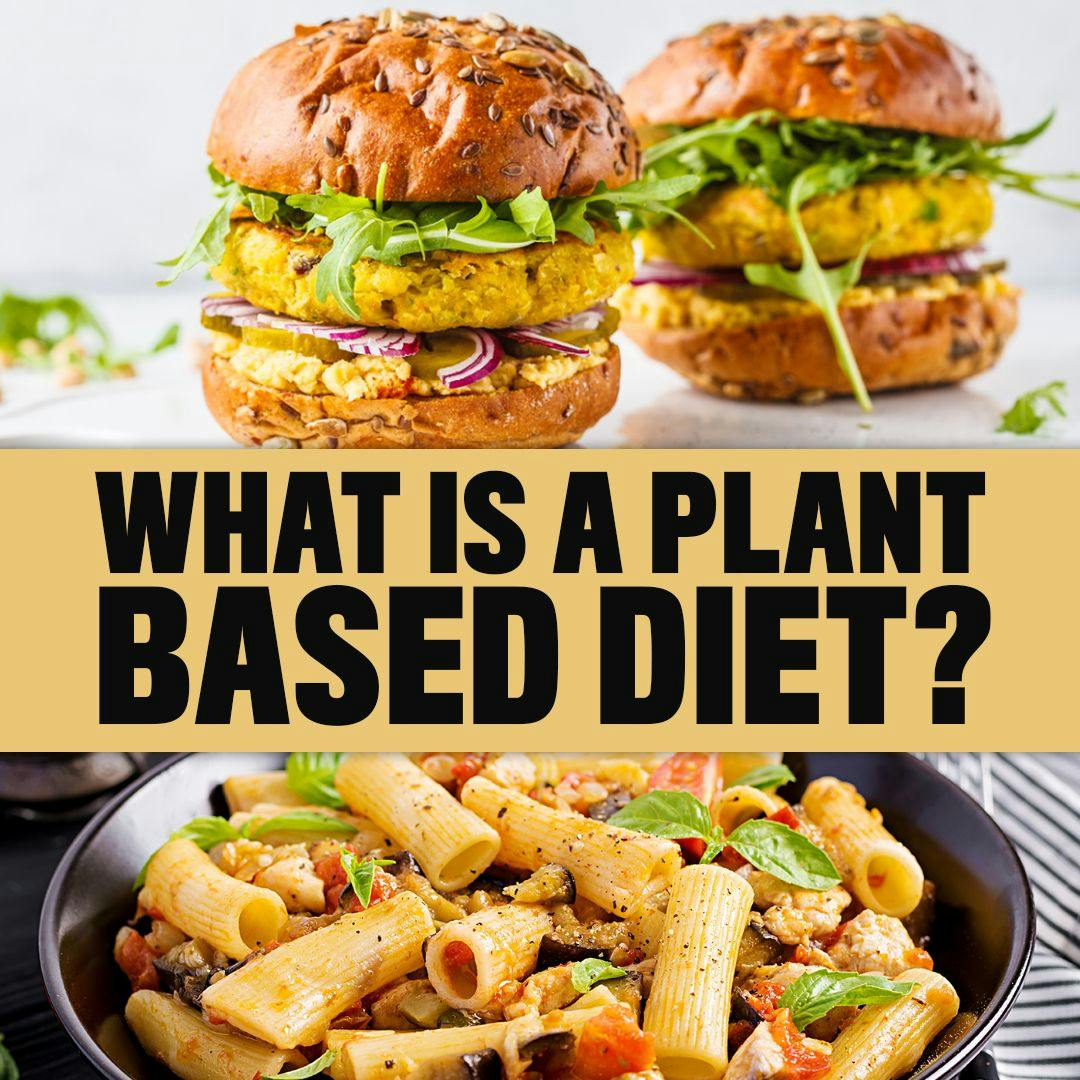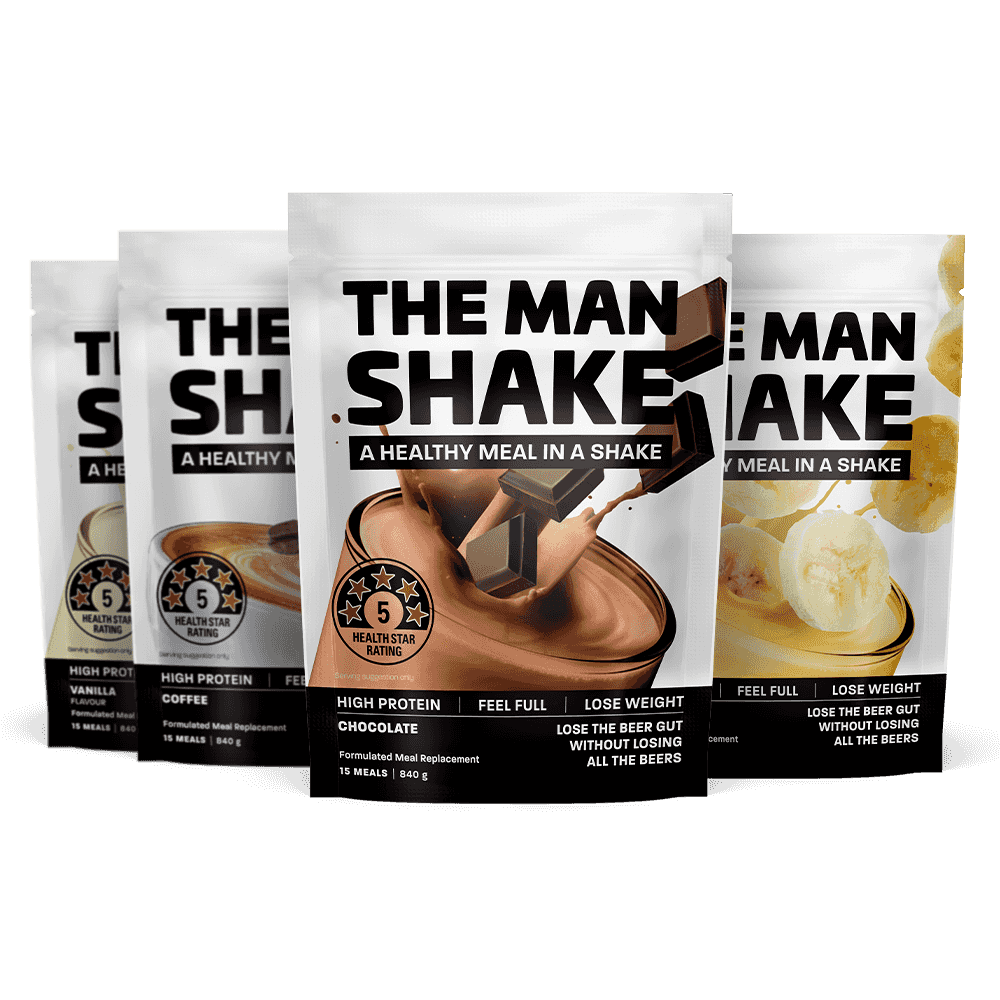What Is A Plant-Based Diet And How Does It Work?

Share
Chances are, you’ve seen something about plant-based diets on social media or tv recently, you may have even had a co-worker mention they are trying it.
The interest in plant-based diets has soared in recent months thanks to the popularity of documentaries like Game Changers. Unfortunately, the popularity has led to confusion about what a plant-based diet is, and how it compares to a vegan diet. The silver lining of this interest and confusion, however, is that people are beginning to look at their own diet for ways of improvement.
To answer the question, a vegan diet is plant-based, but a plant-based diet isn’t necessarily vegan. Confusing right?
Don’t worry, this article will explain everything you need to know about a plant-based diet, and the benefits it can bring.
Before I start, I’m not on a plant-based or vegan diet. I like to think of myself more of a nutrivore, which means I eat for nutrition, and I think that’s what we should all aim to do. That being said, I’m not going to begrudge people for their chosen diet path. Every diet is a personal choice and as long as your diet works for you, it’s a good one.
But no diet works for everyone, and any lunatic that tells you it can is just that – a lunatic. We all have different nutritional needs and no one diet can cater to the holistic needs of us all. With that being said, let’s get into it.
A vegan diet, on the other hand, excludes all animal products, for health or ethical reasons.
The main difference here is meat consumption. All vegan diets are plant-based in the sense that they base their whole diet on plants, but it doesn’t work vice-versa as plant-based diets can include meat.
A plant-based diet is what most people should be eating, meaning that 70% of your dinner plate should be plants. This isn’t a crazy concept either, think of a normal dinner plate - a third of the plate would be a source of protein, like a piece of steak, and the other 70% is made up of vegetables. Now if you were to take that concept and enact it across your whole diet, that’s plant-based.
The benefit of moving toward a plant-based diet is pretty simple – eating more plants. I think we can all agree that we do not eat anywhere near enough vegetables in our diets. In the most recent Bureau of Statistics report on consumption, only 4.1% of Aussie blokes met their recommended daily intake of vegetables, and only 3% met both vegetable and fruit intake. The fact that 95% of us don't meet our daily vegetable intake was the driving force behind our Choc Super Greens.
What we do eat enough of, on the other hand, is meat. And before you say it, no I’m not trying to turn you into a vegetarian, meat plays an important part in a healthy, balanced diet. There are key vitamins and minerals that are essential for good health that you can only get from animal products too. But if you look at your diet, you’d probably agree that meat is a primary focus, and you eat quite a bit.
With a plant-based diet, that focus shifts to ensuring you get enough vegetables and fruit each day, and that the protein sources you consume are minimally processed. The best thing about fruit and vegetables is that it’s low calorie, meaning you can eat a lot more without impacting the scale. It’s also full of essential vitamins and minerals that enable your body to function efficiently and healthily.
Whether you label it ‘plant-based’ or not, trying to incorporate more plants into your diet can only ever be a positive move. With 97% of us not eating enough of fruit and vegetables daily, there is no question of the correlation between that and the rise in obesity.
So, where to from here? Well, you don’t need to cut out your meat consumption or reduce it radically, but striving for a 70-30 dinner plate is an attainable and simple nutrition goal you can do.

The interest in plant-based diets has soared in recent months thanks to the popularity of documentaries like Game Changers. Unfortunately, the popularity has led to confusion about what a plant-based diet is, and how it compares to a vegan diet. The silver lining of this interest and confusion, however, is that people are beginning to look at their own diet for ways of improvement.
To answer the question, a vegan diet is plant-based, but a plant-based diet isn’t necessarily vegan. Confusing right?
Don’t worry, this article will explain everything you need to know about a plant-based diet, and the benefits it can bring.
But no diet works for everyone, and any lunatic that tells you it can is just that – a lunatic. We all have different nutritional needs and no one diet can cater to the holistic needs of us all. With that being said, let’s get into it.
So, what is a plant-based diet and how does it differ to a vegan diet?
A plant-based diet is one that focuses on eating more foods derived from plants, including vegetables, whole grains, beans, nuts, seeds, and fruits. A plant-based diet reduces meat consumption but doesn’t restrict the consumption of animal products.A vegan diet, on the other hand, excludes all animal products, for health or ethical reasons.
The main difference here is meat consumption. All vegan diets are plant-based in the sense that they base their whole diet on plants, but it doesn’t work vice-versa as plant-based diets can include meat.
The benefits of a plant-based diet
A plant-based diet isn’t a new concept. The idea of eating minimally processed foods and emphasising whole foods as a major part of your diet is a core concept for many diets that appear in the health sphere (think Paleo and Mediterranean diets). These diets are simple: make plant-based nutrient sources the centrepiece of your meals and include meat as a protein source to compliment this.A plant-based diet is what most people should be eating, meaning that 70% of your dinner plate should be plants. This isn’t a crazy concept either, think of a normal dinner plate - a third of the plate would be a source of protein, like a piece of steak, and the other 70% is made up of vegetables. Now if you were to take that concept and enact it across your whole diet, that’s plant-based.
What we do eat enough of, on the other hand, is meat. And before you say it, no I’m not trying to turn you into a vegetarian, meat plays an important part in a healthy, balanced diet. There are key vitamins and minerals that are essential for good health that you can only get from animal products too. But if you look at your diet, you’d probably agree that meat is a primary focus, and you eat quite a bit.
With a plant-based diet, that focus shifts to ensuring you get enough vegetables and fruit each day, and that the protein sources you consume are minimally processed. The best thing about fruit and vegetables is that it’s low calorie, meaning you can eat a lot more without impacting the scale. It’s also full of essential vitamins and minerals that enable your body to function efficiently and healthily.
Final thoughts
There is a distinct difference between a plant-based diet and a more extreme diet like veganism. Animal products are an important source of essential nutrients for your body, and when you exclude these nutrients you must supplement your diet to ensure you get the nutrients you require.Whether you label it ‘plant-based’ or not, trying to incorporate more plants into your diet can only ever be a positive move. With 97% of us not eating enough of fruit and vegetables daily, there is no question of the correlation between that and the rise in obesity.
So, where to from here? Well, you don’t need to cut out your meat consumption or reduce it radically, but striving for a 70-30 dinner plate is an attainable and simple nutrition goal you can do.








